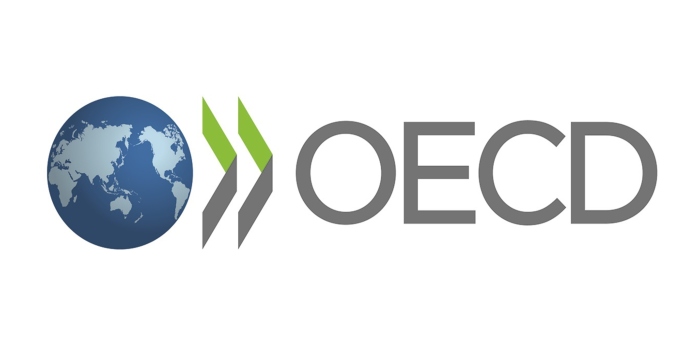
07/06/2021 – The OECD, together with governments of the US, Australia and Japan, has commenced consultations on the development of the Blue Dot Network certification process.
The Blue Dot Network seeks to help bridge the global infrastructure investment gap by establishing a globally recognised symbol of market-driven, transparent and sustainable infrastructure projects.
To achieve this, the Blue Dot Network aims to support and attract investment into quality infrastructure through the establishment of a voluntary, private-sector-focused and government-supported certification scheme for infrastructure projects.
“As we “Build Back Better” after the COVID-19 pandemic, sustainable, quality infrastructure that meets Blue Dot Network standards will help ensure a sustainable global economic recovery,” said Ambassador Marcia Bernicat, Acting Undersecretary for Economic Growth, Energy, and the Environment, US Department of State.
We know that there is strong support for such a global certification framework, because an OECD survey of prospective members of the Executive Consultation Group showed, that an overwhelming 96% of respondents agreed that such a framework would help drive quality infrastructure investment.
Indeed, initial findings from this report show that survey respondents overwhelmingly supported a framework to assist investors in identifying projects that have positive sustainability features and therefore represent lower-risk investments.
“This initiative helps achieve many of the OECD’s core objectives – from environmental protection to ensuring responsible business conduct, high quality infrastructure governance, anti-corruption, gender equality, sustainable finance as well as economic and social progress,” OECD Secretary-General Mathias Cormann said.
“We are also home to many of the key international standards in these areas, including the OECD Guidelines for Multinational Enterprises, the OECD Recommendation on Public Procurement, and the Anti-Bribery Convention. We have experience promoting policies on quality infrastructure investment through our regional programmes, including in Southeast Asia.”
Over 150 global executives, covering 96 OECD and non-OECD countries, responsible for approximately USD 12 trillion of the world’s assets under management, have participated in the launch of an OECD-led Executive Consultation Group to provide high-level guidance for the Blue Dot Network.
The launch of this group coincides with the release of results of a new OECD report that documents demand from both the private sector and civil society for a global certification framework that promotes quality infrastructure investment and streamlines international infrastructure standards.
“The Blue Dot Network will promote, facilitate and streamline the application of international standards and best practices, and thereby ensure a level playing field and contribute to building trust around quality infrastructure investments,” Mathias Cormann said.
The OECD, at the request of the governments of the United States, Australia and Japan, will provide technical support for the Blue Dot Network by building an evidence-base, mobilising a multi-stakeholder partnership and designing the certification framework.
As many governments look to stimulate their economies in the wake of the COVID-19 pandemic, the Blue Dot Network could provide a timely tool for enabling the quality infrastructure investment that will support a stronger, sustainable, cleaner, and more inclusive recovery.
In particular, the report found that the Blue Dot Network could potentially:
- overcome key obstacles inhibiting infrastructure investment through strengthening transparency and ensuring alignment with best-in-class international standards
- simplify the integration of sustainability considerations in infrastructure development and investment
- build greater confidence around the value and integrity of Environment Social and Governance data
- introduce greater efficiency in the infrastructure investment process
- foster greater infrastructure investment in low- and middle-income countries
“If we are to optimise the recovery from the pandemic, reach global net zero by 2050 and achieve the Sustainable Development Goals, we must find better ways to bridge the infrastructure gap,” said Petter Matthews, Executive Director CoST and Executive Director Engineers Against Poverty. “The Blue Dot Network will help us raise standards and has the potential to make a major contribution in this endeavour.’’
For more information, journalists should contact the OECD Media Office (tel. + 33 1 45 24 97 00).
About the Blue Dot Network
The United States, Australia and Japan have come together to develop this new concept, which convenes governments, private sector and civil society to promote quality infrastructure investment that is open and inclusive, transparent, economically viable, financially, environmentally and socially sustainable, and aligned with international standards, laws, and regulations. This global certification regime will promote the widespread application of international standards such as the G20 Principles for Quality Infrastructure Investment, the G7 Charlevoix Commitment on Innovative Financing for Development, the Equator Principles and numerous OECD standards, amongst others. At the request of the founding countries, the OECD Trust in Business Initiative is coordinating technical support to ensure an evidenced-based approach to the development and consultative market-driven design of this global certification framework.
About the forthcoming report
Towards a global certification framework for quality infrastructure: Private sector and civil society perspectives on the Blue Dot Network presents the initial findings from a survey of representatives of the private sector and civil society. It marks the first phase of the OECD Trust in Business Initiative’s technical support for the Blue Dot Network and was developed in close consultation with an Executive Consultation Group consisting of over 150 organisations from OECD and non-OECD countries convened to inform the design of a credible certification framework. The Executive Consultation Group comprises leading institutional investors, asset managers, banking institutions, infrastructure developers, construction companies and civil society organisations working across a range of issues including, among others, anti-corruption, social inclusion, transparency and development, biodiversity and climate adaptation.
About the OECD
Working with over 100 countries, the OECD is a global policy forum that promotes policies to preserve individual liberty and improve the economic and social well-being of people around the world.
<!–
| Full Name | |
| Email Address | |
| Comment |
|
–>
by :
Source link
